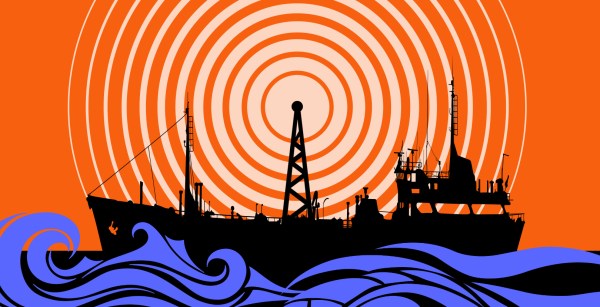In the 1960s, if you were a teenager in the United States, a big part of your life was probably music. There was a seemingly endless supply of both radio stations and 45s to keep you entertained. In the UK and other countries, though, the government held a monopoly on broadcasting, and they were not always enthralled with the music kids liked. Where there is demand, there is an opportunity, and several enterprising broadcasters set up radio stations at sea, the so-called pirate radio stations. In 1964, Irish businessman [Ronan O’Rahilly] did just this and founded Radio Caroline. Can you imagine that 60 years later, Radio Caroline is still around?
Not that it has been in operation for 60 years in a row. There were a few years the station’s ship had been impounded by creditors. Then, the ship ran aground on the Goodwin Sands and was damaged. You can see a news short from 1965 in the video below (Radio Caroline shows up at about the 1:50 mark).












